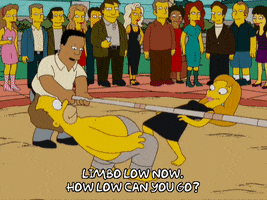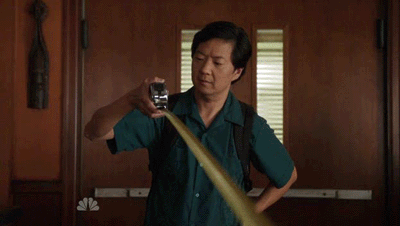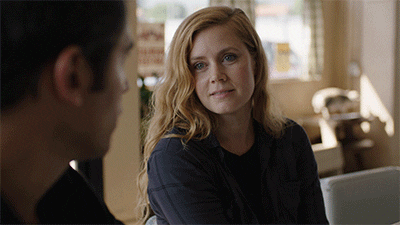Take charge of your career by supercharging your bargaining power
Know your alternative options so you are not held to ransom by your current job
Welcome to Art Science Millennial, a newsletter for non-techies navigating the world of tech! I know the struggle because I’m one of you.
So much of our jobs is about negotiation: Making the case for a raise, requesting a deadline extension, saying no to extra work when your plate is already full.
My usual approach to negotiation would be to dream up the sweetest deal possible, establish the worst terms that I could stomach, and then end up with an outcome somewhere in between (hopefully closer to the sweetest deal end of the spectrum).
This perspective focused my mind on the eventual agreement to be reached. But recently I’ve realised it is equally essential to think about what happens if both sides fail to reach an agreement and it’s time to walk away.
When it comes to that, we fall back on the Best Alternative To a Negotiated Agreement, or BATNA for short, a fundamental concept that can be applied not just to everyday negotiations but also to managing one’s career.

What BATNA is, and what it isn’t
In the book “Getting to Yes: Negotiating Agreement Without Giving In”, the BATNA is described as such:
The reason you negotiate is to produce something better than the results you can obtain without negotiating. What are those results? What is that alternative? What is your BATNA — your Best Alternative To a Negotiated Agreement? That is the only standard that can protect you both from accepting terms that are too unfavourable and from rejecting terms it would be in your interest to accept.
To be clear, the BATNA is not the “lowest price you can go”. That’s just your bottomline, and though it’s not your favoured agreement, it is an agreement nonetheless.

The BATNA comes into play when you decide it’s no longer worth your time and effort haggling over the price and give up on reaching any deal at all.
And more importantly, the BATNA is not just a passive fallback plan, but a key aspect that we should be actively strengthening before and even during the negotiation process.
A useful yardstick
Like everyone else, I’ve wondered from time to time if my career is where it should be and that led me down the path of comparing pay and titles with my peers. Now, I believe a much better yardstick is my BATNA — what else could I be doing other than my current job.
So when the next annual salary letter comes in, instead of wondering how my increment measures up against my colleagues, I want to ask myself: “Is this new salary better than my BATNA?”

Such an internal benchmark places the emphasis not on outdoing others but on self-betterment. It incentivises me to regularly update my skills, widen my horizons beyond my comfort zone, and become more employable.
If my BATNA remains the same after one year, it effectively means my employer doesn’t need to give me a raise to retain me. After all, if I stayed put on my current salary and my options haven’t gotten any better in the last 12 months, why should my employer bother paying me more?
When it seems like your career is going nowhere, take out your BATNA and have a good look at it. Maybe the quality of your BATNA makes it an even better option than to continue negotiating your current job. Or perhaps you get a wake up call as to why you find yourself in this position.
It’s all in my hands
It’s largely up to me how good my BATNA is. Unlike a job, my BATNA can’t be derailed by a crappy boss (all hypothetical, I love my current role!). Said boss can steal my credit for that kick-ass project and block my promotion, but he/she can’t stop me from learning about the latest data analytics software or expanding my network at meet-ups.
So the BATNA shouldn't be stored behind a “break in case of emergency” glass panel. It should be easily within reach and constantly polished. And the stronger my BATNA, the more confidence I have in handling work situations. Most people instinctively know this — think about how a job interview is less of a pressure cooker when you’ve another offer already on hand.

Now imagine being infused with that uplifting feeling every day at work. It may seem paradoxical, but the better my prospects outside, the better an employee I make.
Like what you’re reading so far? Sign up so you don’t miss the next update of Art Science Millennial!
What’s the other side’s BATNA?
“Getting to Yes” advocates knowing not just my own BATNA, but also that of my negotiation counterpart. Simply put, my employer’s BATNA is to pass my responsibilities to someone else. He/she might even realise my responsibilities are not consequential after all. There’s a reason why when someone is retrenched, it’s sometimes described as “made redundant”.
While no one is truly indispensable, it’s a hard truth that some are more dispensable than others. I’m reminding myself to periodically assess my employer’s BATNA: is it getting stronger or weaker? This is all the more crucial in these times of unprecedented economic uncertainty, when bosses are under pressure to scrutinise every aspect of their businesses for cost savings.
The trouble with creative types
Now, a special word to the creative workers (writers, photographers, anyone associated with the arts) out there. Many have extremely weak BATNAs because they simply can’t fathom being in another line of work.
As a fellow creative type, I get it. There’s a real rush when your work has significance beyond dollars and cents and you’re producing something that’s unique and beautiful, bringing intangible impact to the world. And even if these impalpable triumphs lose their shine from time to time, your boss tells you: “Your work is meaningful and this is the only place you can do it and still make a living.”

There’s a reason why the obsessive journalist with tons of emotional baggage is a trope for dogged dedication to the point of self-destruction.
If you’ve ever felt held to ransom by your creative job and felt like it was a drug you just can’t quit, know this:
You basically created a monopoly situation where your employer is the sole option that you’re willing to consider. We all know what happens to the customer in a monopoly.
Creative work is already changing due to technology. Even if your current job is a refuge from tech disruption, that safe haven is undoubtedly shrinking.
The world at large is being rapidly shaped by tech. So if you’re interested in the world, you’re interested in tech. And if you’re interested in tech, you can pick up new tech skills that are increasingly required even for jobs that are usually filled by general degree holders.
Again, this circles back to the idea that BATNAs should not stay stagnant and should instead be honed at every opportunity.
Taking the blinkers off our careers
For too long in my working life, I’ve thought that being singularly focused on the job at hand was the way to go in my career. Now I think of it as a sort of tunnel vision, limiting my worldview to a narrow field.
“Getting to Yes” calls being unaware of your BATNA “negotiating with your eyes closed”:
Not having developed any alternative to a negotiated solution, you are unduly pessimistic about what would happen if negotiations broke off.
Overcoming this fear of the unknown is reason enough to take a long, hard look at our BATNAs to get a realistic picture of what comes next should we leave, or are asked to leave, our jobs.

I’d love to know what you think of this newsletter and what you’d like me to write about. You can reach me at zi.liang.chong@gmail.com or by leaving a comment if you’re reading this on the Art Science Millennial website. If you enjoyed this piece, sign up so you get subsequent updates in your inbox!

